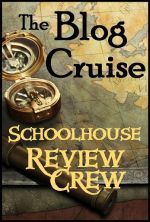
I'm a dedicated word hacker and so I tweaked the current TOS blog hop from
"What is Your Favorite Subject to Teach"
(hopefully, you'll understand why in a minute)
to
"What is Your Favorite TOPIC to Teach."
Hands down, it's
STORY.
And I use about any subject I can get my hands on to teach it: history, literature, art, film, writing and science, people, language and vocabulary, Bible, apologetics and theology among others.
I've always been a word nerd. I learned to read at 4. My Dad was teaching my older-by-1-year- sister to read at home, using a phonics program. Successful completion of the days lesson earned the student red and gold stars on a crisp chart taped to the side of the refrigerator. I loved that chart (I'm definitely a visual learner) and I loved the thought of having the key to unlock the mystery of letters. I begged my dad to show me the program. He did and I've been reading and story loving ever since. But I was missing a fundamental part of it all. I was a consumer of words without discernment. A reader without heart.
30 years ago, I was sick. Physically ill, spiritually dead and disenchanted with life. I was wandering around in the wilderness, truly lost, with no hope, no direction, no reason. Christ found me there, wooed my heart and mind and soul and told me the most compelling story of love and purpose I had ever heard. He infused me with the life and light of it. And then He promised to give me a story of my own; not quite as compelling as His, but enough for a mere mortal. I have been smitten with redemptive story since and it has been the hallmark of our marriage, home and homeschool.
Curriculum for history, theology, literature, science? Story. Living books; light on the twaddle. History is full of magnificent crescendos and devastating crashes. It needs a healthy balance of theology and purpose, or it can be oppressive. Art and writing are excellent skills to teach any one who wants to communicate well, but I emphasize to my students that redemptive story is far more productive and compelling than story that seeks to titillate or horrify or romance without it. Without redemption, it becomes merely a way to patronize one's baser desires and instincts.
Apologetics is great training in the getting to the meat of story. It's like training FBI agents in the hundreds of particulars found on the real deal $100 bill. You know the story.
Postmodernism and revisionism and the advent of cheap words are attempting to minimize the importance of story, shedding doubt on the power and wonder of it. If a blank canvas is high art, then we've not only found new meaning, we've lost it all together. If words mean whatever you want them to at the time, eternal means now, never or soon enough. Story is just as important now, maybe more so, than ever before.
It is my favorite subject to teach. How 'bout you?
For more educational inspiration, check out the TOS blog (permalink will go live on Feb. 12)


2 comments:
Beautifully written! I teach my children a similar mantra: Everyone has a story--including every single person, famous or not--including YOU! I teach them this so they will look beyond what they see at the surface. And I am glad to know that Christ is an important part of your story, as He is mine.
Yes! Nothing, nothing makes sense without the story. Thank you for sharing this.
Post a Comment